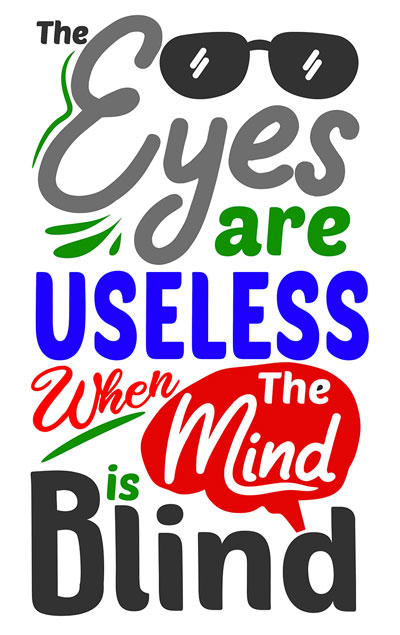I recently came across a quote that struck a chord with me—especially as it relates to grassroots political involvement:
“Eyes are useless when the mind is blind.”
While this phrase can be applied to many aspects of life, its relevance to politics—particularly at the grassroots level—is profound.
A few weeks ago, the South Carolina Republican Party held its biennial convention in Columbia. Before the event began, I had a brief conversation with a first-time delegate who was eager but uncertain about what to expect. That interaction reminded me of my own early experiences attending county and state conventions. I remember how, as a newcomer, I was quickly embraced by some of the more radical voices in my local party. Their strong views and rhetoric shaped my early understanding of politics, party dynamics, and even political figures. At the time, I was little more than a warm body in a chair, attending conventions without fully understanding the rules or procedures. I parroted the anger and accusations of rule-breaking that I’d been told to expect—even though I had never read the party rules or heard of Robert’s Rules of Order.
This brings me back to the quote. At the start of the SCGOP convention, I witnessed that principle in action. After the chairman opened the convention and covered some preliminary items, the first significant order of business was electing a temporary convention president—the individual who would preside over the initial stages of the convention. Two candidates were nominated: one (Jay) by the SCGOP leadership who had organized the convention, and another (Jordan) by a faction opposing that leadership.
Following procedure, the chairman first conducted a voice vote. As anyone who’s chaired large meetings knows, voice votes in contested matters often reflect who can yell the loudest—not necessarily who holds the majority. When the vote was called, Jordan’s supporters—largely from Upstate counties—were much louder, even shouting and cheering, while Jay’s supporters were quieter. Some in the crowd, unfamiliar with the rules and blinded by emotion, believed the louder side had won. When the chairman then called for a standing vote (a more accurate voting method in such situations), cries of “We won! You’re cheating!” erupted from the floor. To these delegates, what they had just witnessed—a loud response followed by a different procedure—confirmed what they had been conditioned to believe: the leadership would steal the vote.
But their eyes deceived them—because their minds had been blinded by a lack of knowledge.
SCGOP Rule 2(e) explicitly states that the proceedings of state conventions “shall conform to the most recent edition of Robert’s Rules of Order, Newly Revised.” According to those rules, a voice vote is standard for motions requiring only a majority (RONR, p. 45, ll. 27–29), but other methods—like a standing vote or show of hands—are often used when the result is unclear or disputed (RONR, p. 44, ll. 32–33). The chairman acted entirely within his authority by retaking the vote using a standing method. This practice—known as a division of the assembly—is meant to ensure accuracy and fairness.
The chairman moved forward with a counted standing vote but was then asked to hold the vote using paper ballots. The final result? Jay won, 495 to 417. Even if 24 additional votes had gone to Jordan, the outcome would not have changed.
This incident highlights something critical: when people are uninformed about the rules and processes that govern our institutions—be they political parties, churches, schools, or businesses—they are vulnerable to manipulation and misperception. What their eyes told them was happening didn’t match the reality—because their minds weren’t equipped to understand it.
Their accusations of cheating and injustice were not grounded in fact, but in ignorance. And in politics, that kind of blindness is dangerous—not just for individuals, but for the integrity of the entire process.

















